Girls Will Be Girls is about the coming-of-age journey of a woman and her daughter. What made you take up a project like that?
Richa: Director Shuchi Talati and I are college classmates. We’d been in talks for a long time that we should do something together. Later she went to film school in the States and I went on to become an actor here. It just sort of worked out. If she had written something else, I would have 100 percent backed it too. Besides being my closest friend, another factor that also mattered was her script, which was so amazing. It went to so many script labs, on its own with no input from me. So she’s a really talented person. And I’m so glad this is our first.
Ali: We got nominated at the Indie Spirit Awards. We got two nominations, one for Best Supporting Performance for Kani Kusruti and the other one is the John Cassavetes Award, which is a prestigious one.
Coming to being hands-on parents. How many sleepless nights have you guys faced? Do you take turns handling the baby?
Ali: Richa has been the master manipulator in this, in a beautiful way. Around two months ago, she managed to train our baby to sleep nicely. Now, she sleeps from 10 pm to 8 am.
Richa: Yesterday, she slept at 8:30 pm and woke up at 7:30 am.
So no more sleepless nights for you?
Richa: The change is so profound that you’re sleepless for other reasons. In the first month, you’re confused and still calibrating. Your body is adjusting, and you’re tuned to survival needs. Anxiety levels are high initially but decrease over time.
Ali: We were figuring things out. We went as two people and came back as three. At home, it was just us and the baby, unlike the hospital where we had support.
Richa: There’s a pink little thing lying, wrapped like a burrito. It’s so cute and edible. What do you do with it?
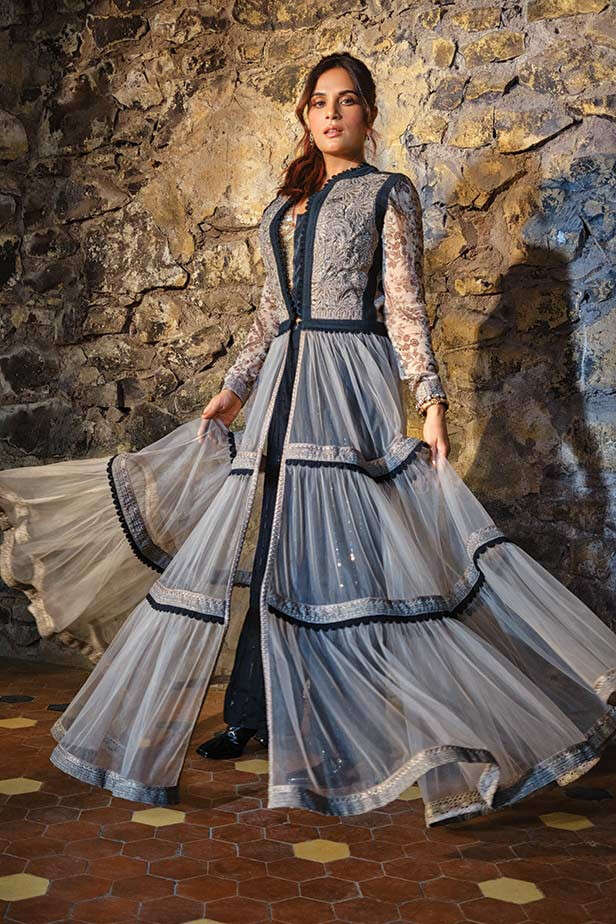
But you have support at home.
Richa: Yes, I do. Hats off to the traditional wisdom of the Bais in India. They know so much about massage and baby care.
Ali: It’s also a process of teaching us how to take care of the baby.
Tell me about your love story. How did you meet? Was it on the sets of Fukrey?
Richa: No, it wasn’t on the sets of Fukrey. We met on another set.
Ali: But for me, it started during the readings for Fukrey. I felt a need to be close to her, to know her. I didn’t know it was love but I had to be near her. I was amazed by her performance in Gangs Of Wasseypur.
Richa: That performance earned me a Filmfare Award, despite tough competition.
So, were you seeing other people? When did you realise you wanted to know each other better?
Richa: It was after the film, during the promotions. I noticed Ali dancing goofily, and that sparked something. He was unaware and struggling with the moves, which felt genuine to me. I texted him to get coffee and we gradually got to know each other through theatre friends.
Has your inter-religious marriage ever been a problem with your families? An actor mentioned getting trolled for ‘Love Jihad’ because her husband is Muslim. Do you take trolling seriously?
Richa: You can’t take it seriously. Many trolls might be bots or people projecting their own issues. We shouldn’t worry about it.
Ali: Chaplin’s speech about unloved men, machine men, machine hearts, and machine minds is relevant even today. Sometimes, I troll people too but it’s important to distance yourself from it.
How has your relationship changed after marriage?
Richa: I don’t think much has changed from our dating days. We’ve relaxed in each other’s company a little bit. We’re no longer putting our best foot forward. Which is a great space to be in.
Ali: But I’ve found an anchor. For me that was really important. Yeah, I found a home here with Richa. I think that was the most beautiful thing. I’ve lived out of suitcases most of my life. So for me to have my own cupboard is a big trigger point.

So she’s your safe space.
Ali: Actually just space.
Richa: I love the life we’ve created together. When we met, I had a really tiny, banged-up car while Ali had a cycle. When you grow from there, it’s really precious.
How long did you date before deciding to marry? What are the ups and the downs? What did you learn about each other?
Richa: It’s like a documentary.
Ali: I still don’t like that you worry too much.
Is she an overthinker?
Ali: That’s an understatement.
Richa: Massive overthinker.
Ali: She takes care of everything.
Richa: It’s an elder sister syndrome.
But that’s a good thing, right?
Richa: Yes, but sometimes it’s good to be selfish, especially after giving birth.
What do you like the most about him as a husband?
Richa: He really is lovely. I have said it multiple times.
Is there a quirky, eccentric quality about him that is endearing?
Richa: I think he thinks I get pissed off but I no longer get pissed off
about it. He dozes off easily. Like he can doze off mid-conversation while eating…
Ali: Because of the fact that I am relaxed around her.
Richa: So now I take it as a compliment. He is so easy to be around and I love that. You are just sitting, and when you suddenly look, he’s dozed off. I want to say what I dislike. Small things can trigger him, like a nonfunctioning light. He’s super short-tempered. But also quick to cool down. A WhatsApp meme can make him giggle and forget his anger. He doesn’t hold grudges and often needs reminders about past incidents.
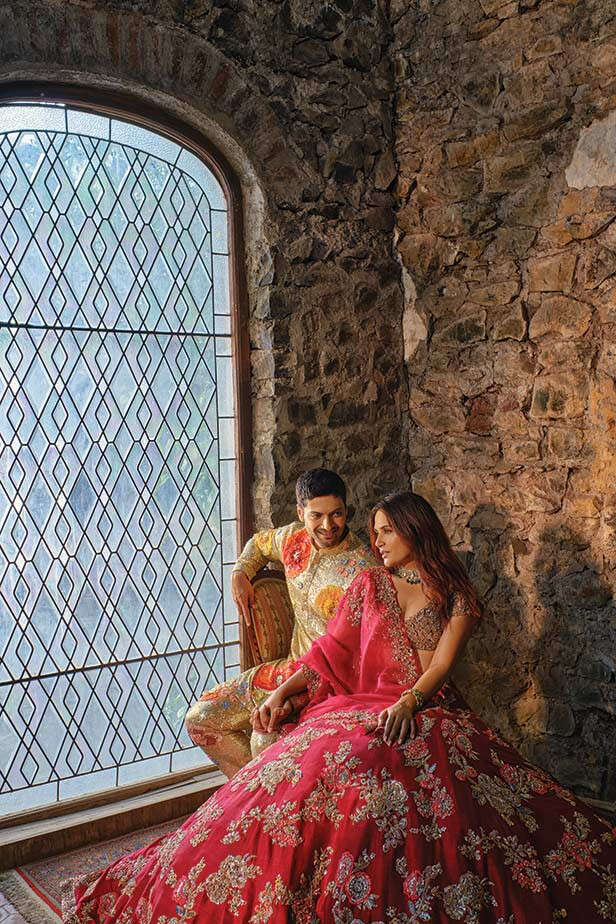
So the least you like about her is her overthinking?
Ali: Yes, she worries too much.
Richa: He loves everything about me, right, Ali?
Ali: (Playfully) Yes.
Do you fear her? Is she intimidating?
Ali: She can be but she’s a softy inside. A lot of men get intimidated by strong women.
Richa: I wouldn’t know if I intimidate directors and co-stars because they only tell me retrospectively. In past relationships, before Ali, I wasn’t as mature. I often hid my true self, like in Runaway Bride, where the character says, “I’ll have whatever eggs he’s having.” Many women suppress their true selves, and it takes time to understand who you are. With Ali, I don’t have to fight for my agency. He’s not questioning it, which has allowed me to soften into my presence. It’s like a small animal trying to appear big and ferocious due to past hurt or bullying.
Can you talk about the hurt and bullying without naming people?
Richa: I’ve observed that softer people often get bullied. I was a bully myself as a child, especially with my four brothers. Growing up in a joint family and being raised in Delhi toughened me. Delhi makes women develop an armour. Realising that I was also a bully changed me. Now, I instinctively assess people and situations, like noting who took a lunch break when we were late. This instinct is useful as a mother because it brings a sense of peace.
I talked about bullying because we work in a brutal field with a lot of body shaming and unsafe spaces for women. Have you experienced something like that?
Richa: Definitely, as a 22-year-old woman on a set, or during Gangs Of Wasseypur… it was a heavy testosterone set with no luxury or comfort, just guerrilla-style shooting. Coming from St. Stephen’s College, I suddenly interacted with actors from different backgrounds, which was challenging.
As outsiders, how do you hack the movie business?
Richa: Have we hacked it? Winning the Filmfare was a fair decision, without lobbying.
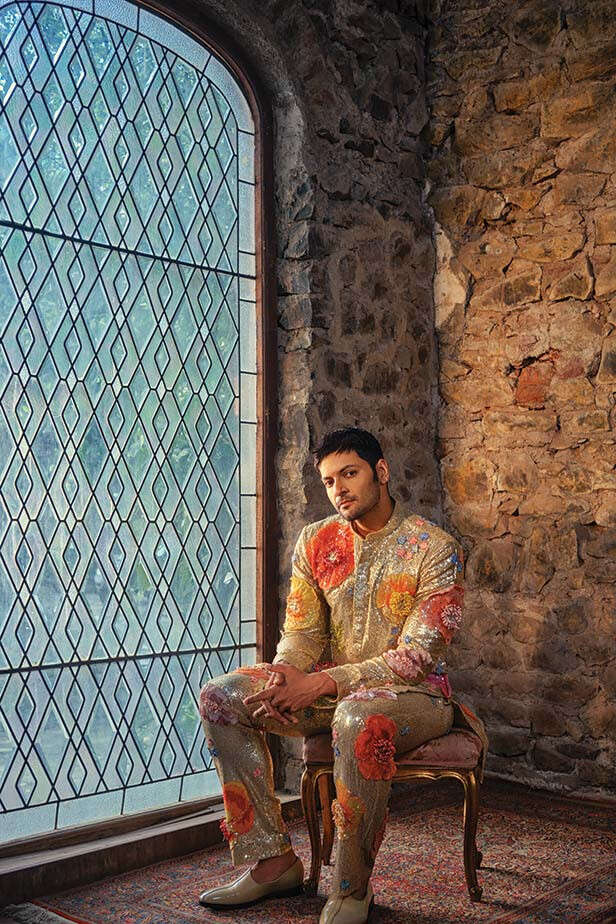
Are you still coming to terms with the movie business?
Richa: When I entered the industry in 2008, the recession hit and my film’s release clashed with 26/11. It taught me patience and resilience. It’s not a sprint but a marathon. You learn to be detached, focus on your lane, and not compare yourself to others.
Ali: You have to drive on your own and do it.
Ali, you’re a fine actor but haven’t had a breakthrough.
Ali: I don’t have box office hits. I worked in Hollywood with Dame Judith Dench in Victoria & Abdul. But I haven’t received due recognition. Seeking validation changed for me after working abroad.
Did you audition for Hollywood roles?
Ali: Yes, I auditioned. For Victoria & Abdul. I got called to London and met Judy Dench. She was sweet and did her homework. And she knew I had worked in Fukrey, though she called it FuckRay.
Does PR cost a lot?
Richa: Agencies sign people based on their Instagram numbers. For instance, our leading lady from Girls Will Be Girls, Preeti Panigrahi, was told to boost her Instagram by a managing agency. Now, this is a new girl who has created history at Sundance by winning the Best Actor Award. The film is going to festivals. But she is told by the agency that you don’t have Instagram numbers.
Ali: PR costs are high. Earlier, it was barter but now expenses are too much. Even stepping out requires hair, makeup, and styling.
Richa: Now, we also have to take photos and send them to designers. It’s all cocooned, with less real interaction.
Did you face any kind of sexism?
Richa: Oh, 100 percent. From both men and women. It’s like a default setting.
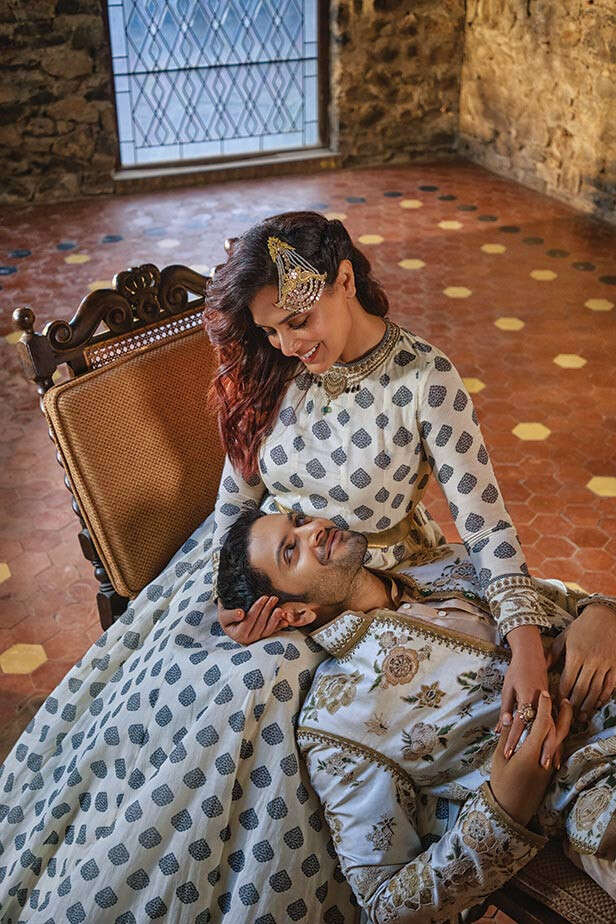
Ali, did you face the same?
Ali: I used to get insecure because I didn’t know the right way. My first big film, Always Kabhi Kabhi, produced by Shah Rukh Khan, bombed at the box office. On the sets, I was made aware of my position. It’s a status game and you slowly start understanding it. Over the years, I’ve seen how it changes. Entitlement is killing it; it creates a feeling of superiority that’s really wrong. Cinema is about compassion but we’re conditioned otherwise.
Richa: It has to be a team effort.
Ali: Entitlement makes it cringe and shuts people off. For example, a senior makeup artist wanted to read a script to design a look, which would have benefitted the film. Respect for technicians is lacking. We need to celebrate with one another. I’ve seen that change in Malayalam cinema, where actors support each other. Because they don’t feel threatened by one another.
Do you think management agencies create unnecessary competition and insecurity?
Ali: It’s the systems we’ve created, like agencies that control actors’ fates. One person’s opinion can decide an actor’s chances, creating an ecosystem based on competition.
You mean to say that Ali Fazal, Shahid Kapoor, Ranveer Singh, and Vedang Raina cannot be competing for the same role? Is that what you’re saying?
Ali: I am saying we could be; we could not be… but each one of us deserves a single, separate pitch or a space.
So you’re saying that management lays out profiles of five actors and asks producers to choose from?
Ali: Yeah!
Richa: All actors are constantly saying that my agent needs to do more, whether it’s here or in Hollywood. But I feel when you go abroad, someone who really believes in you will sign you and then tailor-make a pitch for you where they do justice to your craft. Here everyone is like, Who has how many followers, and who can sell coffee or detergent powder?
Ali: But Richa, it’s skewed on both sides at some level. I also feel we are finding our footing here, so it’s wrong to just blame the management. And maybe it’s not about blame.
Richa: Not to blame if you look at it from the management’s point of view. Their business model is flawed. Because they need to have X number of artistes to make the rent for the posh office in Bandra and X number of managers need to be paid, so they can’t put all the eggs in one basket. A lot of rethinking needs to happen with the business model of our chaotic industry. The minute a wise old guy or girl does it, that’ll be it.
Ali: I think we should go back to the drawing table and focus on art, and the rest will fall into place, including the finance models of cinema.
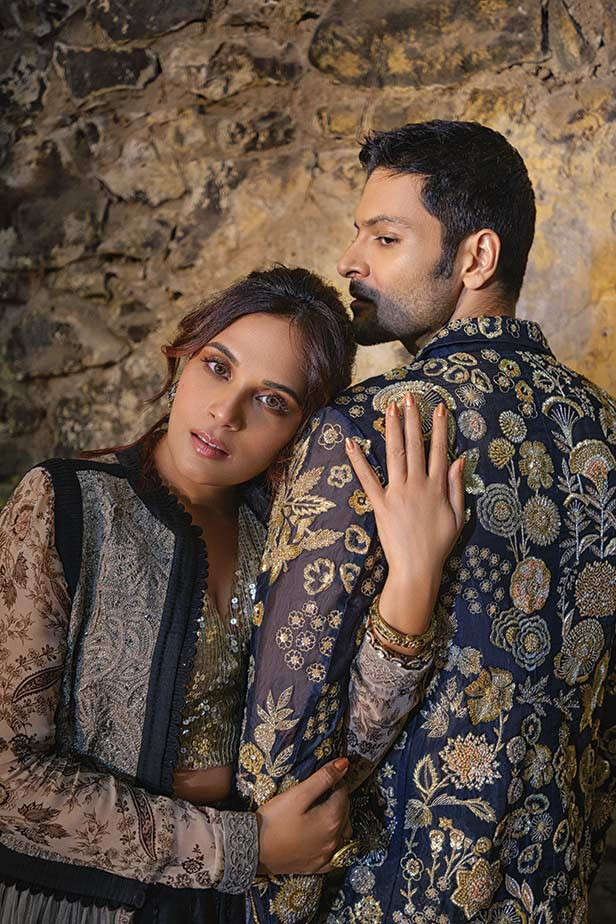
You spend so much money on promotions; why not spend that much on paying a scriptwriter?
Richa: We are living in an era where promotions are more important than the work.
Ali: I feel sad sometimes. We can’t even offer writers we jam with development money. It is something that any studio would do, but it’ll take time to reach there.
Richa: That’s because our production company is like a startup with only
two founders…
Ali: We are a team of four, but we are not financiers. The idea that there’s a writer who is writing for us…
Richa: They shouldn’t have to think about food and bills. To even think, you have to be well fed.
Is there a project of yours that you wished could have been done better or you would have done it differently?
Richa: Certainly, I wish I didn’t do at least like five films.
Why? Because they were not released or marketed well?
Richa: I believed in a promising script and the execution didn’t match up. And that can happen to the best of us. But what does an actor do on day three, when they start to figure things aren’t going as expected? And you have already completed two days of shooting. What do you do then? Do you lose interest or do you still do your best? You got to do your best, man. Your face is there. Even if you hear gentle snores while doing your monologue, you have to do it.
Has it happened to you?
Ali: Yeah. Many times. I was thinking about Milan Talkies by Tigmanshu Dhulia. That was a flop. I think I couldn’t present it well.
Richa: It’s also hard.
Ali: It’s a beautiful love story.
Richa: Now thinking about it from a producer’s point of view, the fact that you’re not able to promote a film is because the cost of production and the cost of marketing are equal. It’s going to kill the small producer. That’s why you see fewer and smaller films today. What do you do in this noise of ubiquity?
Can actors be friends? I’ve seen your pictures with Shabana Azmi, Konkona Sen Sharma, and Dia Mirza.
Richa: It’s possible to be friends without taking photos. We often don’t realise who we’re hanging out with because we’re in the moment.
What’s the meanest and nicest thing said to you?
Richa: The meanest was an article titled ‘10 things we hate about Richa Chadha,’ which was hurtful. The nicest was being told, “You are very beautiful, but that’s the least interesting thing about you.”
Ali: The kindest thing was being told that my mother raised me well. The meanest was comments about my Hollywood roles being ‘blink and miss.’
What advice would you give your 20-year-old selves?
Richa: I was a bully in my 20s but I’d tell myself to hang in there and keep going. I moved to Mumbai with determination and passion.
Ali: Just believe in yourself and stick to what you’re doing.
See Also: Richa Chadha And Ali Fazal On Girls Will Be Girls & Embracing Parenthood In the Ring With Filmfare
